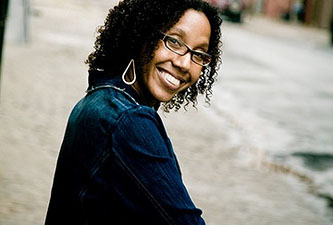I’ve read more books this year than I’ve ever read in a year before. It’s been a very strange time, but these are the books published this year that have resonated with me.

This Mournable Body – Tsitsi Dangarembga (Faber)
Tambudzai’s life is not going how she expected. In her 30s, living in a hostel, unemployed, in a country that’s hostile, there are multiple structural barriers preventing her progress. An examination of a woman and a country. A masterpiece. Longer review here.

Love After Love – Ingrid Persaud (Faber)
A woman widowed from her abusive husband; her young son, and a gay man hiding his sexuality. Their bond asks the question what really makes a family? Betty, Solo and Mr Chetan have lived in my head since I read this in the first half of the year. Gorgeous. Longer review here.

So We Can Glow – Leesa Cross-Smith (Grand Central)
Cross-Smith’s latest short story collection celebrates women and girls. Their triumphs, their tribulations, their crushes, their loves, the way they support each other to rebuild themselves and their lives. The language and the characters fizz. Longer review here.

The Meaning of Mariah Carey – Mariah Carey with Michaela Angela Davis (Macmillan)
It shouldn’t really be a surprise that Carey’s memoir isn’t your average celebrity memoir. Open, honest and reflective, Carey looks at her traumatic childhood, her marriage to Tommy Mottola and her career. A fascinating insight into who she is and how she became one of the most successful singers in the world.

The Bass Rock – Evie Wyld (Jonathan Cape)
The story of three women, in three different time periods, lived in the shadow of the Bass Rock. They’re linked by what one of Wyld’s minor characters – the brilliant Maggie – describes as a serial killer: toxic masculinity. Maggie’s idea of a map showing places where women have been killed by men has haunted me all year, as has the final page of the novel. Longer review here.

Hamnet – Maggie O’Farrell (Tinder Press)
Named for Shakespeare’s son who died – probably of plague – and the play that was probably written about Shakespeare’s grief: Hamlet. Really though, this is the story of Agnes (Anne), Shakespeare’s wife. Beautiful and vividly told. O’Farrell’s well-deserved acclaim was long overdue. Longer review here.

Breasts and Eggs – Mieko Kawakami (translated by Sam Bett and David Boyd) (Picador)
A novel in two-parts exploring Natsuko’s sister’s desire for breast implants and then Natsuko’s questions around whether or not she wants a child. An examination of the expectations placed on women from a working class Japanese perspective with a bonus send-up of the literary industry. Longer review here.

In the Dream House – Carmen Maria Machado (Serpent’s Tail)
A ground-breaking memoir of an emotionally abusive, same-gender relationship. It questions notions of the canon through a range of devices and genres while delivering a devastating portrait of domestic abuse. Longer review here.

Postcolonial Love Poem – Natalie Diaz (Faber)
An investigation of the body as a site of trauma and of desire. Diaz connects the body to the land, the water (particularly rivers) and the air, showing how violation of the elements by white Americans has led to irreparable damage. This is also a celebration of queer love and language that elevates and transcends. Longer review here.

Bad Love – Maame Blue (Jacaranda Books)
19yo Ekuah has an on / off affair with up-and-coming musician Dee. Later she meets English teacher and spoken word night organiser Jay Stanley. The two men exert different pulls on her life, but Ekuah has to work out how she wants to live. I was rooting for her all the way. Longer review here.

Writers & Lovers – Lily King (Picador)
Casey’s in her 30s. Single, a waitress trying to write a novel, living in her brother’s friend’s shed, she meets two men: Silas is a teacher and a writer, but unreliable; Oscar is slightly older, an established writer, widowed with two young boys. Casey has to decide whether to accept or reject a conventional life. I wrote about her choices for the Pan Macmillan blog.

Nudibranch – Irenosen Okojie (Dialogue Books)
Okojie is the queen of stories that take you to unexpected places. Her latest collection is a wild ride of time-travelling silent monks; some unexpected zombies; a heart-eating goddess; mechanical boys, and an albino man who brings fountains to a small town in Mozambique. The incredible ‘Grace Jones’, about an impersonator and her past, deservedly won the 2020 AKO Cane Prize. Slightly longer review here.
Thanks to the publishers (as listed) for This Mournable Body, The Bass Rock, Hamnet, Breasts and Eggs, and Writers & Lovers. All other books are my own purchases.









